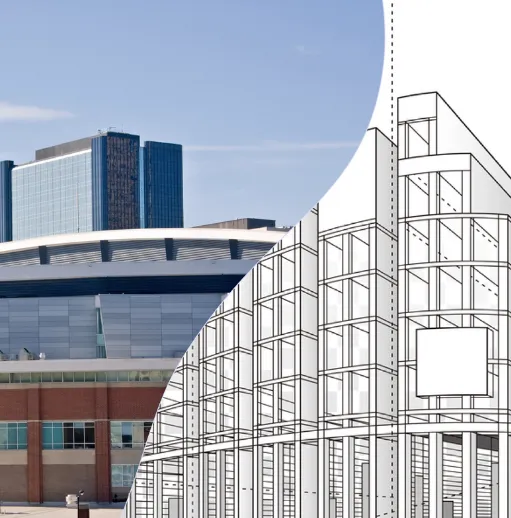
One of the first things any job-seeker wants to know when applying for a position is what it pays. Unfortunately, this information isn’t always apparent—especially for an emerging position like facilities manager. Some job posts offer a salary range; others say things like “salary varies with experience.” For professionals interested in a career in facilities management, this isn’t helpful. It begs the question: what is the average salary for a facilities manager?
While there’s bound to be some variance in facilities manager salary across different regions, industries, and company sizes, it’s still worth knowing what the average salary is. We’ve collected data for facilities managers across the spectrum to shed more light on realistic salary expectations. Below, we’ll dive into salary information and what makes facilities management such a good career option for the future.
What is a facility manager?
A facility manager can go by many different names, depending on the company and the core responsibilities they’re hiring for. Ultimately, the role of a facility manager is to bridge the gap between facilities and the people who use them. The International Facility Management Association (IFMA) splits the duties of a facility manager into six key areas of focus:
- Building technology (smart buildings)
- Employee health and safety
- Recruitment and training
- Environmental efforts
- Maintenance and upkeep
- Culture and social support
From emergency preparedness planning to coordinating janitorial services, scheduled HVAC maintenance to seasonal property services, facilities management spans hard and soft services. Hard services keep facilities up and running; soft services directly affect employees and visitors.
Facility managers are ultimately responsible for leveraging the company’s largest cost center (facilities) into a competitive advantage.
Salary data for facilities managers
According to data compiled from Salary.com, PayScale.com, and Glassdoor, the average salary of a facility manager ranges significantly depending on the size of the company and its location in the U.S. Below is a compilation of salary data with context to provide a better understanding of what to expect when applying for this position.
- The average facilities manager salary in the United States is $99,103
- Experienced facilities managers can expect to earn between $84,964 and $113,381
- Average starting salary for a new facility manager is $66,776
- Multinational companies like Amazon and Oracle offer salaries as much as 10% higher
- Companies in major cities like Chicago and New York pay premiums as high as 20%
Education, certifications, skills, and years of experience all impact salary. In addition, industry plays a role. Data indicates that companies with heavy real estate portfolios value experienced facility managers more. Likewise, complex industries like aerospace and supply chain management pay higher than average annual salaries.
Perhaps most enticing about the salary data for facilities management is the jump from facility manager to facility director or Chief Facility Officer. These roles command an average salary of $130,102, spanning a range of $113,502 and $148,207. With strong potential for upward mobility in this industry, future salary is worth considering for facility managers seeking to establish a career.
Job outlook and future prospects
Is facilities management a good career? According to a report from Markets and Markets, now’s a good time to get into the field. A five-year forward-looking report on the facilities management job market predicts growth “from $39.5 billion in 2020 to $65.5 billion by 2025, at a Compound Annual Growth Rate (CAGR) of 10.6%.”
Not only are job prospects bright, an evolving commercial real estate (CRE) industry has shed new light on the importance of good facilities management. Facilities managers are more in demand than ever before and are growing more important by the day. The rise of the office IoT and smart buildings, coupled with flex work and free assigned workspace trends, is pushing companies to make strategic real estate investments. One of the most essential is an investment in a facility manager who can maximize CRE assets and minimize costs.
The job market is bright for facilities managers, growing brighter with each passing year. There’s ample opportunity for new entrants into the field, as well. According to the U.S. Bureau of Labor Statistics, there are as many as 26,300 new openings for facilities managers annually, but only 21,200 new candidates to fill them. It’s still an untapped job market.
Why is facilities management so important?
There’s a reason companies are willing to pay strong salaries to facilities managers. Consider the cost savings of proper space utilization or free assigned workplace management. Think about the revenue opportunities for a well-managed agile workforce. Imagine the ROI from proper building maintenance. In capable hands, facility management has the power to offset the cost of a facility manager’s salary.
Demand for facilities managers is on the rise, which means salaries will likely become more competitive as time goes on. Now’s a great time to weigh the benefits of a career in facilities management against an average salary that’s already enticing.
Keep reading: How to Become a Facilities Manager


